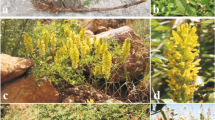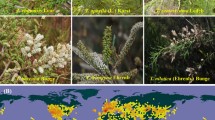Abstract
Origanum compactum Benth (Lamiaceae), is an endemic plant of northern Morocco. rich in phenolic compounds that is commonly used in traditional Moroccan medicine to treat several diseases. Several studies have shown that Origanum compactum has bioactive properties, including, antioxidant, cytotoxic, and antitumor activity. In this study, the aqueous infusion of Origanum compactum leaves was tested to evaluate the antiproliferative effect against the skin cancer cells line A431 (epidermoid carcinoma). The anti-inflammatory effect was also evaluated by the nitric oxide (NO) and antioxidant assay. For this, we determined the ability of Origanum extracts to inhibit the NO production by the microglial macrophage cells (BV2) stimulated by LPS (Lipopolysaccharide). The extracts showed a significant antiproliferative effect by reducing the cell viability percentage to 20%. In addition, the Origanum compactum infusion has potent antioxidant effects as tested by the 2,2-diphenyl-1-picrylhydrazyl (DPPH) assay, with an IC50 of 38.04 ± 0.52 µg/mL and reducing power of 252.96 ± 4.32 mg AAE/g DM (expressed as Acid Ascorbic Equivalents) evaluated by ferric-reducing antioxidant power (FRAP) assay. Also, the extracts induced a significant (p < 0.001) reduction in NO production by LPS-activated BV2 cells to 5.52 µM/mL compared to 17.12 µM/mL for non-activated control cells. The results obtained in this study show that Origanum compactum has anti-inflammatory and anti-tumorigenic properties that support its use in traditional medicine.




Similar content being viewed by others
References
Babili F, el Bouajila J, Souchard JP, Bertrand C, Bellvert F, Fouraste I, Moulis C, Valentin A (2011) Oregano: Chemical analysis and evaluation of its antimalarial, antioxidant, and cytotoxic activities. J Food Sci 76(3):C512–C518. https://doi.org/10.1111/j.1750-3841.2011.02109.x
Belkamel A, Bammi J, Belkamel A, Douira A (2013) Study of essential oil chemical composition of an endemic Ibero-moroccan: Origanum compactum (Benth). J Anim Plant Sci 19:2880–2887
Chaouki W, Leger DY, Eljastimi J, Beneytout JL, Hmamouchi M (2010) Antiproliferative effect of extracts from Aristolochia baetica and Origanum compactum on human breast cancer cell line MCF-7. Pharm Biol 48(3):269–274. https://doi.org/10.3109/13880200903096588
Chaouki W, Meddah B, Hmamouchi M (2015) Antiproliferative activity of Origanum compactum extract on lung cancer and hepatoma cells. Arab J Med Arom Plan 1(1):44–56
Chew YL, Goh JK, Lim YY (2009) Assessment of in vitro antioxidant capacity and polyphenolic composition of selected medicinal herbs from Leguminosae family in Peninsular Malaysia. Food chem 116(1):13–18. https://doi.org/10.1016/j.foodchem.2009.01.091
El Finou H, Salhi N, Halmoune A, El Rhaffari L (2023) Ethnobotanical Survey of Aromatic and Medicinal plants used in Traditional Medicine and Agri-Food in the Fez-Meknes Region. Biology Med Nat Prod Chem 12(1):133–141. https://doi.org/10.14421/biomedich.2023.121.133-141
Feng LS, Cheng JB, Su WQ, Li HZ, Xiao T, Chen DA, Zhang ZL (2022) Cinnamic acid hybrids as anticancer agents: a mini-review. Arch Pharm 355(7):2200052. https://doi.org/10.1002/ardp.202200052
Kar A (2007) Pharmacognosy and Pharmabiotechnologie, 2nd edn. New Age International Publishers, pp 1–30
Karmakar S, Roy Choudhury S, Banik N L, K Ray S (2011) Molecular mechanisms of anti-cancer action of garlic compounds in neuroblastoma. Anticancer Agents Med Chem 11(4):398–407. https://doi.org/10.2174/187152011795677553
Lee ATC, Azimahtol HLP, Tan AN (2003) Styrylpyrone Derivative (SPD) induces apoptosis in a caspase-7-dependent manner in the human breast cancer cell line MCF-7. Cancer Cell Int 3(16):1–8. https://doi.org/10.1186/1475-2867-3-16
Miceli N, Filocamo A, Ragusa S, Cacciola F, Dugo P, Mondello L, Taviano MF (2017) Chemical characterization and biological activities of phenolic-rich fraction from cauline leaves of Isatis tinctoria L. (Brassicaceae) growing in Sicily, Italy. Chem Biodivers 14(8):e1700073. https://doi.org/10.1002/cbdv.201700073
Oyaizu M (1986) Studies on products of browning reaction antioxidative activities of products of browning reaction prepared from glucosamine. Japanese J Nutrition dietetics 44(6):307–315. https://doi.org/10.5264/eiyogakuzashi.44.307
Park S (2013) The effects of high concentrations of vitamin C on cancer cells. Nutrients 5(9):3496–3505. https://doi.org/10.3390/nu5093496
Pisha E, Chai H, Lee IS, Chagwedera TE, arnsworth NR, Cordell GA, Beecher CW, Fong HH, Kinghorn AD, Brown DM et al (1995) Discovery of betulinic acid as a selective inhibitor of human melanoma that functions by induction of apoptosis. Nat Med 1(10):1046–1051. https://doi.org/10.1038/nm1095-1046
Ramdan B, Greche H, Nhiri M, Amakran A (2017) Anti-glycation and radical scavenging activities of hydro-alcohol and aqueous extracts of nine species from Lamiaceae family. J Med Plants Stud 5(1):331–345
Toyoda T, Tsukamoto T, Takasu S, Shi L, Hirano N, Ban H, Kumagai T, Tatematsu M (2009) Anti-inflammatory effects of caffeic acid phenethyl ester (CAPE), a nuclear factor-κB inhibitor, on Helicobacter pylori-induced gastritis in mongolian gerbils. Int J Cancer 125(8):1786–1795. https://doi.org/10.1002/ijc.24586
Youbi AEHE, Ouahidi I, Mansouri LE, Daoudi A, Bousta D (2016) Ethnopharmacological survey of plants used for immunological diseases in four regions of Morocco. Eur J Med Plants 13(1):1
Zengin G, Bulut G, Mollica A, Picot-Allain CMN, Mahomoodally MF (2018) In vitro and in silico evaluation of Centaurea saligna (K. Koch) Wagenitz—An endemic folk medicinal plant. Comput bio chem 73:120–126. https://doi.org/10.1016/j.compbiolchem.2018.02.010
Acknowledgements
The authors thank the Department of Immunology and Infection at Biomedical Research Institute, Hasselt University, Belgium.
Funding
This research project was supported by the Institutional University Cooperation Program at Moulay Ismail University (CUI- UMI) funded by the VLIR-UOS program at Hasselt University Belgium. The Project number was PAM-P6.
Author information
Authors and Affiliations
Corresponding author
Ethics declarations
Competing interest
The authors have no competing interests to declare that are relevant to the content of this article.
Additional information
Publisher’s note
Springer Nature remains neutral with regard to jurisdictional claims in published maps and institutional affiliations.
Rights and permissions
Springer Nature or its licensor (e.g. a society or other partner) holds exclusive rights to this article under a publishing agreement with the author(s) or other rightsholder(s); author self-archiving of the accepted manuscript version of this article is solely governed by the terms of such publishing agreement and applicable law.
About this article
Cite this article
Hamza, E.F., Mohamed, B., Hicham, M. et al. Antiproliferative, anti-inflammatory, and antioxidant activity of aqueous extracts from Origanum compactum benth aerial part. Vegetos (2023). https://doi.org/10.1007/s42535-023-00662-w
Received:
Revised:
Accepted:
Published:
DOI: https://doi.org/10.1007/s42535-023-00662-w




